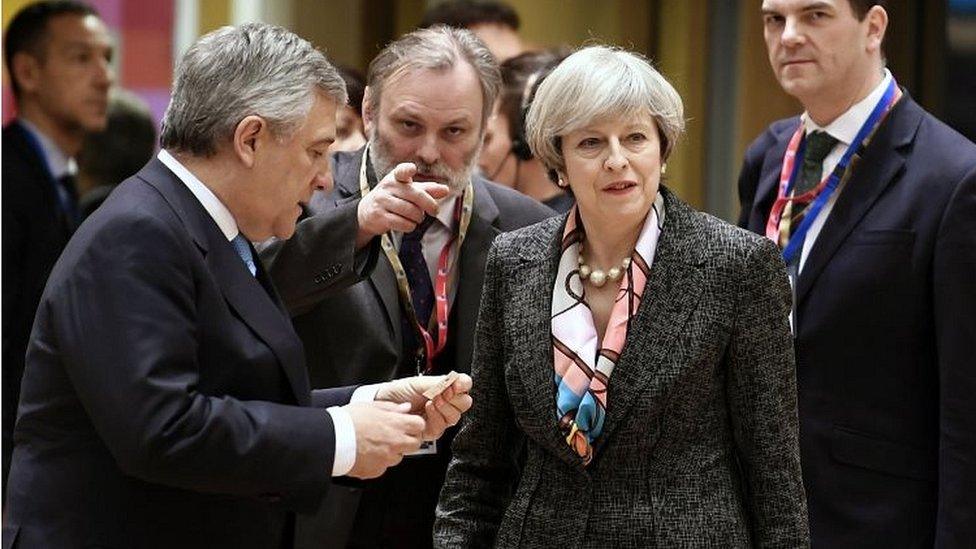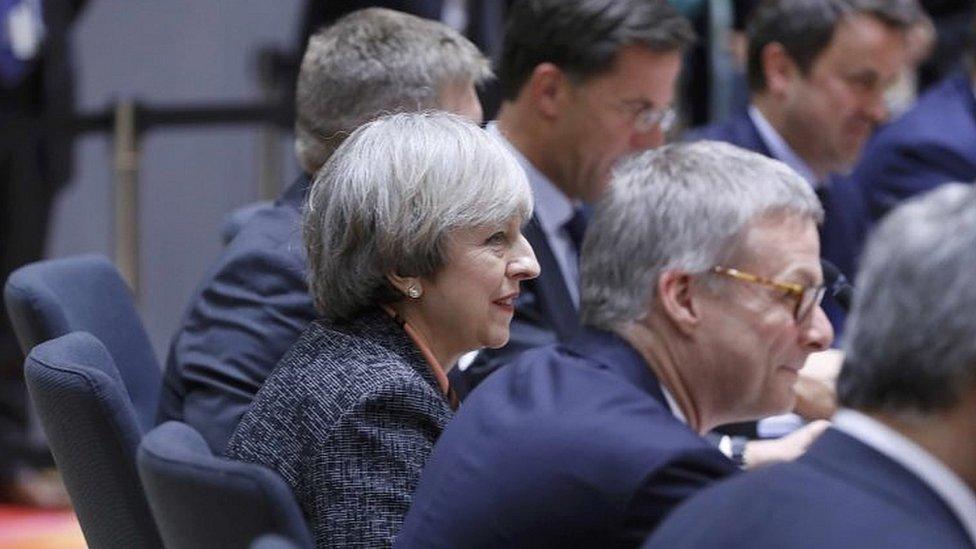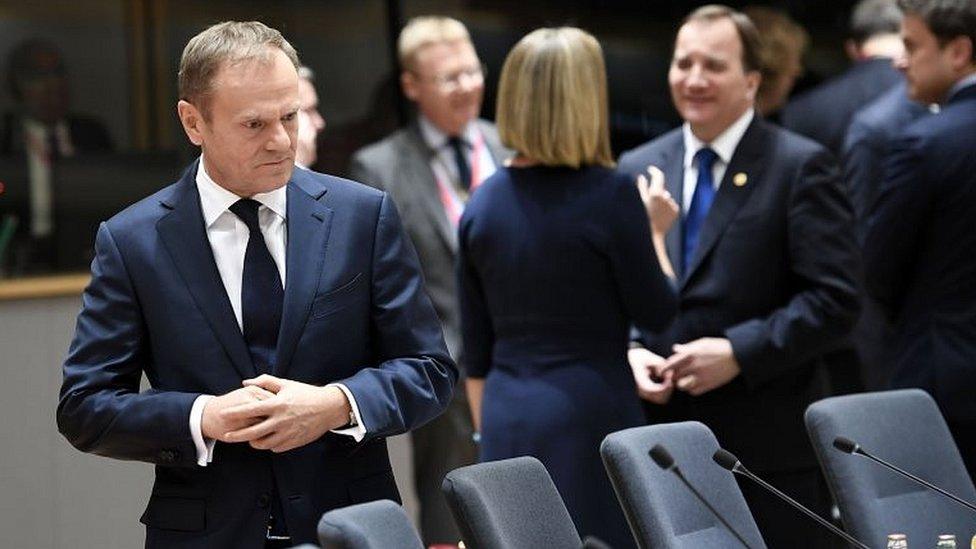Boris Johnson: UK should reject 'Brexit cash bill'
- Published
Boris Johnson: Britain has an "illustrious precedent"
Boris Johnson has told the BBC that Britain should reject any EU demands for a £50bn "exit bill" and follow the example of former PM Margaret Thatcher.
It has been reported, external that EU negotiator Michel Barnier has said the UK must continue to pay into the EU until 2020.
Mr Johnson said it was "not reasonable" for the UK to "continue to make vast budget payments" once it left the EU.
He cited Mrs Thatcher's success at the 1984 Fontainebleau Summit, when she threatened to halt payments to the EU.
Laura Kuenssberg: Thatcher to inspire UK 'Brexit bill' talks?
Poland fails to stop Tusk EU re-election
"I think we have illustrious precedent in this matter, and you will doubtless recall the 1984 Fontainebleau Summit in which Mrs Thatcher said she wanted her money back, and I think that is exactly what we will get," he told BBC political editor Laura Kuenssberg in BBC Two's Brexit: Britain's Biggest Deal.
"It is not reasonable, I don't think, for the UK having left the EU to continue to make vast budget payments, I think everybody understands that and that's the reality."
The UK won the rebate in 1984, external, after then prime minister Margaret Thatcher threatened to halt payments to the EU budget.
At the time the UK was then the third poorest member of the Community but was on course to become the biggest net contributor to the EU budget.
Asked about Mr Johnson's comments, Mrs May said "there was only ever one Margaret Thatcher" and insisted the British people did not vote for Brexit to keep paying "huge sums" into the EU budget.
The Daily Telegraph has reported that Mr Barnier raised the idea that the UK may have to pay 60bn euros (£52bn) to cover the UK's share of outstanding pension liabilities, loan guarantees and spending on UK-based projects until 2020 - even if it leaves the EU by 2019.

Theresa May with the European Parliament's president

Mrs May will continue to attend summits during the Brexit process

Donald Tusk got the backing to stay on in his role
Irish premier Enda Kenny suggested he may back demands for the UK to pay a "divorce bill" when it leaves the EU, telling reporters at the summit on Thursday: "When you sign on for a contract, you commit yourself to participation.
"And obviously the extent of that level of money will be determined. Mr Barnier is the lead negotiator for the European Union and obviously Britain will have a say.
"But that no more than any other problem will have to be faced, it will have to be dealt with and it will be dealt with."
Meanwhile, in London, ministers have cleared time for MPs to vote on reversing Lords Brexit bill amendments.
Commons Leader David Lidington announced that the bill will be debated by MPs on Monday, 13 March.
Ministers hope to overturn peers' calls for a "meaningful" parliamentary vote on the final terms of the UK's withdrawal from the EU.
They also want to reverse a Lords defeat on the issue of guaranteeing the rights of EU citizens in the UK.
Tusk backed
At the summit, the 28 EU leaders discussed migration, security and economic growth, but the meeting began with a vote backing former Polish prime minister Donald Tusk remaining European Council president - a move opposed by Poland's government.
Polish Prime Minister Beata Szydlo had accused predecessor Mr Tusk of interfering in the country's domestic affairs.
The president is elected by the European Council by a qualified majority, which means that no single country can veto it.
At the summit, Mrs May called for more action to counter "Russian disinformation" and "raise the visibility" of Western commitment in the western Balkans, where Moscow faces allegations of helping to plot a coup attempt in Montenegro.
She is leaving the summit on Thursday.
The other 27 leaders are expected to use Friday's informal meeting to discuss the next summit in Rome on 25 March, which will celebrate the EU's 60th anniversary.
A government source suggested Mrs May, who plans to trigger Article 50 this month - the mechanism that kick-starts the UK's departure from the EU - will not be attending the Rome summit.
- Published30 December 2020
